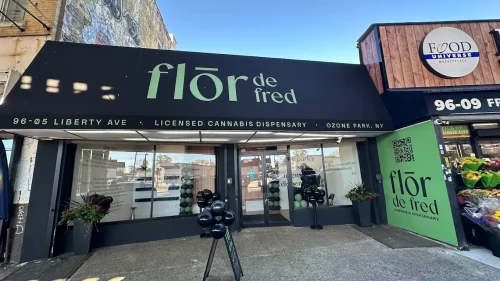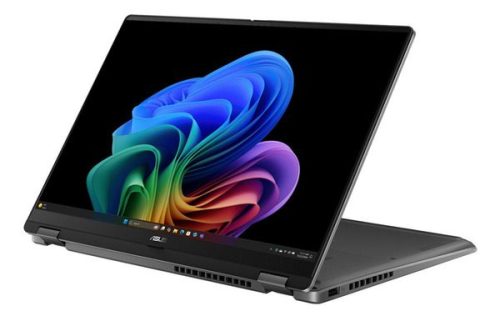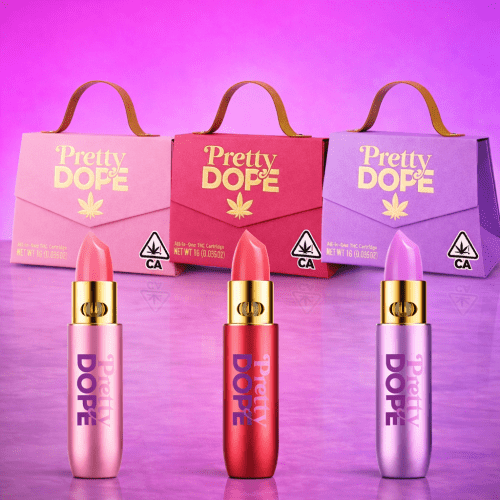Sendai Era is the hip-hop duo of emcee Era and producer Sendai Mike. Everything they do is centered around their Asian Pacific Islander heritage and the issues within their communities.
They’re coming out to Neumos on January 9th to spread their good vibes on the second annual Seattle World Tour. As a fresh name for RMR, I wanted to sit down and talk with them so our readers could really get to know these guys before their performance. I invited them over for some coffee and the conversation that followed was incredible.
These guys gave me the type of interview I love, one where I hardly have to say anything. I made small edits to our chat for clarity but these were their raw honest thoughts at 10 o’ clock in the morning and they couldn’t be any more dope.
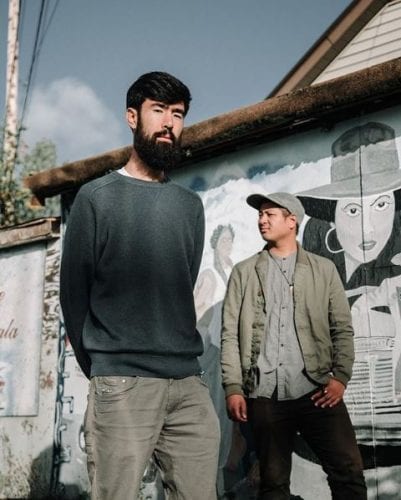
Sendai Era Talks Seattle World Tour With Respect My Region
RMR: Out of the five venues involved in the Seattle World Tour (Nectar Lounge, Neumos, Crocodile, Central Saloon, and Columbia City Theater), which one has had the most significant impact on you?
Mike: There have been so many good shows at all of those venues. We used to, well we still occasionally play Stay Happy at Central Saloon. You know, when it started we played that every month for pretty close to a year, I think. Not every month, but we played it A LOT.
So the Central, I’ve gotten familiar with a certain group of people there. Despite having gotten bigger shows at other venues the Central is really ingrained in us. Honestly, I’m not a huge fan of the Central as a place to play music. Like, it’s cool but there’s a table in the middle of the floor so if you want to sit and chill you’re like in the middle of everything. But, all the music experience inside that place holds a special place in my heart.
Era: I think that’s how we learned, at least for me, to perform better. Like, try new stuff and try and work on it. Stay Happy during that time period and now like really helped uplift that and help sharpen that for us.
RMR: How long have you guys been performing together?
Era: 2013?
Mike: Yeah, I think we met up in 2012 and started playing really lowkey stuff like, I think the first show we ever did was Black Coffee at the Co-Op when it was still around. At this event called Church.
Era: Every Sunday
Mike: It was like Raven, Donormaal, and us.
RMR: That’s a crazy throwback, like when Jonah [Falk] started doing the Hip-Hop Monday’s at the Substation.
Era: We were out there a couple times too.
RMR: So collectively, Y’all would say the Central has had the most impact on you guys.
Mike: For our specific experience I would say. Now, this is no knock on the Central, I love the place, but it’s just like a weird place to see a show. So, I want to caveat our answer with that.
Sendai Era Wallflower Music Video
RMR: Which venue do you think is best to see a show at then?
Mike: Depends on the type of music, but purely for the show going experience, I really like Nectar. The sound is good, there’s the outside area. It’s open, like the feeling of it inside isn’t so enclosed.
RMR: Out of the different neighborhoods, which one do you find yourselves in most frequently?
Era: For me, it would be the Columbia City neighborhood. Across the street from the theater, there’s a program WAPI. There’s like a catalyst hip-hop program. I remember being in there and there was like ciphers, places to write, places to do poetry.
There were a couple of mentors in there for me – I do youth work and community work too – and they were also doing that. So, that also kind of helped me form how you do both. How you can be an artist and do community work and be an educator. I think that was a real place for me to really grow as an artist. I’m still there a lot; I work pretty close by there too.
RMR: Having resource centers like that is crucial for music. Like, [Mike] I know you’ve been working on resource material with your engineering videos.
Mike: Where he was talking about, I actually used to teach beats and production there. At the youth, and community center, yeah I don’t know what they’re doing now, I don’t know anybody there, constantly changing staff. I was teaching beats there, funny enough, when those youth graduated and became young adults they were sort of the first people who came to me as clients.
RMR: Having those people come to you and working on other projects, did that help your guys’ music?
Mike: Yeah, it helped me learn how to record people.
https://www.instagram.com/p/BsOI1iKlq9t/
Everything that you guys have created has been centered on your guys’ backgrounds, who you are, obviously huge in Pacific Islander culture.
Rico: My writing and hip-hop have always been a huge role, it helped me process things growing up. It was a form of music with people of color, the black community. The history behind it, fighting for space, fighting for a place to be, resonated with me.
But when I started to write I always kept to myself. I’m kind of like an introverted person. It wasn’t until I met a community organization, where they did open mics, they did workshops. They talked specifically about like why the Philippines is the way it is and why people are leaving and connecting it to countries around the world and how the similar things are happening.
In that space, I was also like really pushed to write and share. It started to frame art and poetry as something that shifts culture. It could keep things the same, it could create new things but it could also challenge how society thinks about stuff. I think that framework that I learned and how music can change culture even though it is a part of culture too, really pushes everything, it really resonates.
Stream Sendai Era Lakas
When I wrote Lakas, the latest project we did, or a set, or our videos, it’s always highlighting the root problems that are happening in a way that tells the stories of people. It tells my story, tells other peoples stories. Knowing that it’s very unique and it’s my own and our own, there’s actually a lot shared and sharing that is really powerful.
Particularly with these videos, like we make music for the people but like a lot of times it’s in isolation by ourselves writing. So this concept is really highlighting who we do music for, in a different sense, we chop it up and learn about their story and their experience and that inspires the music in the background. It’s like a more active way to create music for me and you get to build a lot with many different people.
https://www.facebook.com/SendaiEra/videos/395594957649662/
RMR: Now Era, you had family featured on your most recent album release, Lakas, right?
Era: Yeah, that was my sister. She’s hella talented, plays the guitar. My mom and dad met in a factory, they like worked in a beer factory and met through a music contest and my sister kind of picked that up from them. For me, I didn’t really pick up an instrument or started to sing in a choir, it was hip-hop where I resonated with music.
RMR: So are they not as shy when it comes to performing? Like, you said that you were very shy and introverted are they more open?
Era: I think that they perform in different ways. Like, my parents perform in the church. So, they perform to get everybody to be a part of something greater. My sister, she’s really talented but she’s also into sports. So I guess music has always been an outlet for her but she also expresses in another way.
RMR: Has it helped you with your confidence having a family that’s supportive of music?
Era: Yeah, of course! I think it influences everything, even the way that I write and the way that I choose to convey everything, like the guitar, is acoustic. Philipinos like love songs, so like that kind of vibe. If you ever go to like a karaoke bar or something it’s going to be ballads and stuff.
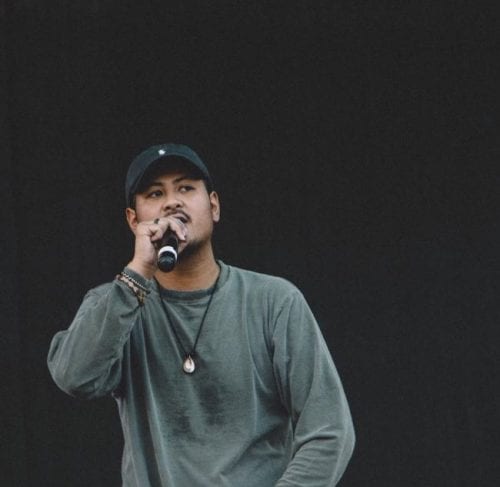
RMR: So Mike do you have music in your family too or was this something that you kind of fell into through your own passions?
Mike: My father is a traditional American old-time enthusiast, he plays the banjo, fiddle, the guitar, square dancing all that and he’s VERY into it. So I was playing the fiddle when I was six years old. I was playing in that old-time square dance environment; I was playing on the street busking. I was also playing classical in a youth orchestra. I started playing drums I think when I was in third grade; I played drums through high school and in high school I started doing afro-Cuban percussion. I stopped playing violin around 7th or 8th grade I think because it just wasn’t as fun as drums. After high school beats just turned into an all-consuming lifestyle and then the rappers came.
RMR: Now you even have a rapper flying out to come work with you, right?
Mike: The dates aren’t confirmed yet, I just spoke with them over the phone but that’s what it sounds like. Actually, you know, early last year I recorded this project with a producer named L’orange and the artist from that flew out from North Carolina to record that.
https://www.instagram.com/p/BlLmEIzH8Ba/
RMR: What are your personal favorite types of sounds to listen to, and then what are your favorite kinds of sounds to sample or incorporate into your own music?
Mike: We’ve gone through a lot of different systems and we use these sorts of creative systems for writing songs. When we started I made these beats by chopping samples with older music, put the drums down, send it to Rico and Rico would write. In the beginning, it was very much so classic hip-hop sounding because of the samples and the dusty drums and all that.
We started moving to more synths, more non-traditional hip-hop drumming as we progress and as our music takes change and as we try to move outside of the hip-hop genre just a little bit. It’s been a constant evolution, the sound is constantly evolving based on the process that we’re using to create.
We found through all of these iterations, different software, different workloads, different beats that I would send to Rico. Rico writing to other beats and then me re-creating the beats, we make things together and then we write or we make the beats and Rico just starts recording and all the different processes inform the sound of the song so it’s constantly shifting.
At least for me, it’s less about the end sound we’re going for, but it’s more about the process of creating and that’s where I find the real magic. So it’s really been fun with these videos because we’re making these little bite-sized songs every week to really experiment with different sounds, different styles and remembering like, oh I used to do drums like this years ago and it’s like nice to bring that back in a way where we don’t have to commit.
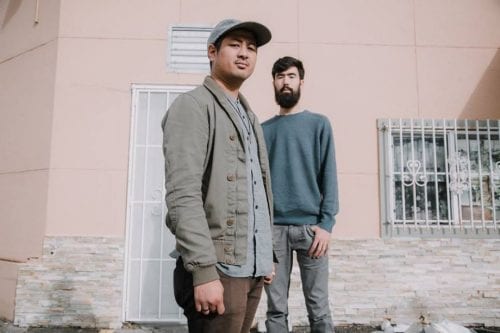
Era: With that creative process, I’m into like song structure, like how do we create these moments. I remember spending so many hours before when we were just looking at it scientifically and like I think now, and it came out the way that in that process of trying to express it and getting to like the root of what is it that we want to feel.
At this point, making these one-minute songs it’s like really free. It feels free doing it because you have one minute to create all these different things and in that one minute how can you bring people into the sound to the visuals to all these different things. We don’t have to commit as much. I don’t know how to express it other than it’s free, like in that day whatever we go through that’s what it was.
Mike: What I like about it too is that it really forces us to focus on the qualities of the music and the expressiveness in it and we’re not focused on overproducing. We’re not focused on trying to create and make it sound good. We’re not focused on trying to overproduce drops or think about arrangements or pre-hooks and trying to force the experience on listeners. We just have to make sure that the experience is just reasonably compelling at the very core level of the music.
As an engineer and producer you know I tend to want to produce the song and make the things happen. But it’s like, if we can just have the things happening already at the very simplest level then we can just put it out there because we literally don’t have time to be messing around with it.
We will make another album at some point. But for now, I feel like the album as a piece of art, it’s still a desirable and reasonable thing to achieve. But as a product, it doesn’t make as much sense anymore as far as content.
People don’t want to be taken out of platform to listen to 30 seconds of a song to see if they like it or not. People don’t even want to watch a one minute preview of the music video so that they can then click a link to then watch the full version. The rate at which people don’t want to do that is just going up and up.
People are getting blind to any sort of thing asking them, “Hey, check out my Spotify link,” that’s just the way things are going. I don’t know whether it’s good or bad. It just makes sense that we have to make our art in a form that is acceptable to the listener in 2018. With the attention on social media, the artistic intention is still there, we’re just packaging it in a way that is suitable for the way people consume it now.





